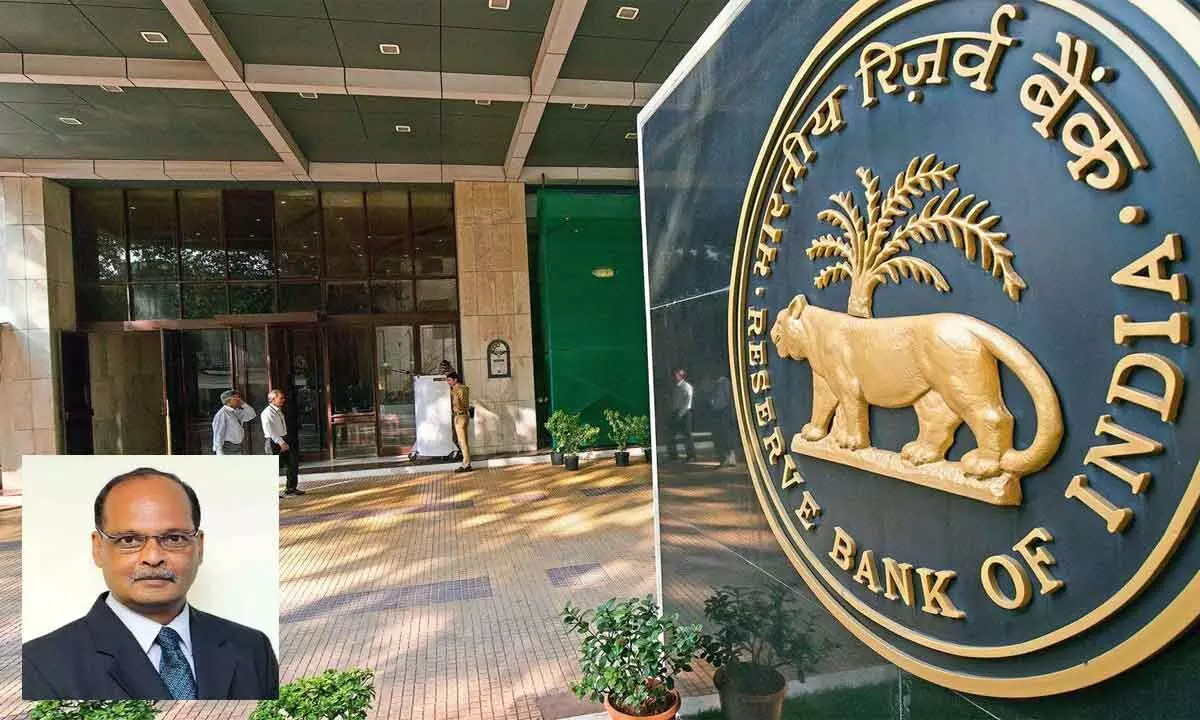Despite challenges to domestic economic activity, India to remain in advantageous position in 2023-24: RBI
Reserve Bank of India (RBI) has said that domestic economic activity does face challenges from an uninspiring global outlook going forward, but resilient domestic macroeconomic and financial conditions, expected dividends from past reforms and new growth opportunities from global geo-economic shifts place India at an advantageous position in the current fiscal.
image for illustrative purpose

New Delhi, May 30 Reserve Bank of India (RBI) has said that domestic economic activity does face challenges from an uninspiring global outlook going forward, but resilient domestic macroeconomic and financial conditions, expected dividends from past reforms and new growth opportunities from global geo-economic shifts place India at an advantageous position in the current fiscal.
The central bank has made these observations in its annual report for 2022-23, which was released on Tuesday.
Commenting on prospects for 2023-24, the RBI said in its annual report that the GDP growth for the current fiscal is projected at 6.5 per cent.
"Taking into account softer global commodity and food prices, good rabi crop prospects, sustained buoyancy in contact-intensive services, the government's continued thrust on capex, higher capacity utilisation in manufacturing, double digit credit growth, receding drag on purchasing power from high inflation and rising optimism among businesses and consumers, real GDP growth for 2023-24 is projected at 6.5 per cent with risks evenly balanced," it said.
"Inflation risks have moderated with downward corrections in global commodity and food prices and easing of the pass-through from high input cost pressures of last year," it added while commenting on price rise.
"With a stable exchange rate and a normal monsoon - unless an El Nino event strikes - the inflation trajectory is expected to move down over 2023-24, with headline inflation edging down to 5.2 per cent from the average level of 6.7 per cent recorded last year," the annual report said.
On the monetary policy, the central bank said it remains focussed on withdrawal of accommodation to ensure that inflation progressively aligns with the target, while supporting growth.
Expressing optimism on the investment scenario in the current fiscal, the report stated that the realignment of global supply chains, transition to green energy and ongoing technological advancements provide a congenial environment for a pick-up in investment activity and raising productivity.
"Robust balance sheets of corporates and banks, coupled with high capacity utilisation, would aid in strengthening the momentum in private investment," it said.
On resilience of financial institutions, the RBI noted that "The recent financial sector turmoil in the US and Europe has necessitated the need to reassess risks to financial stability and resilience of financial institutions in the context of monetary policy tightening. While Indian banks and non-banking financial intermediaries remain sound and resilient, they need to stress test for these new shocks".
Capital buffer and liquidity position, therefore, must be constantly reviewed and strengthened, it advised.
"Accordingly, policy measures, such as guidelines on introduction of expected loss-based approach for provisioning are likely to be announced during 2023-24," it added.
In addition, finalisation of guidelines on securitisation of stressed assets, and a comprehensive review of the prudential framework (including the guidelines on resolution of stress in respect of projects under implementation) are also likely to be undertaken during the year with the objective of further strengthening the resolution ecosystem.
"Several shocks tested the resilience of the Indian economy in 2022-23. On the back of sound macroeconomic policies, softer commodity prices, a robust financial sector, a healthy corporate sector, continued fiscal policy thrust on quality of government expenditure, and new growth opportunities stemming from global realignment of supply chains, India's growth momentum is likely to be sustained in 2023-24 in an atmosphere of easing inflationary pressures," it summed up.
It also cautioned that "Slowing global growth, protracted geopolitical tensions and a possible upsurge in financial market volatility following new stress events in the global financial system, however, could pose downside risks to growth. It is important, therefore, to sustain structural reforms to improve India's medium-term growth potential".

